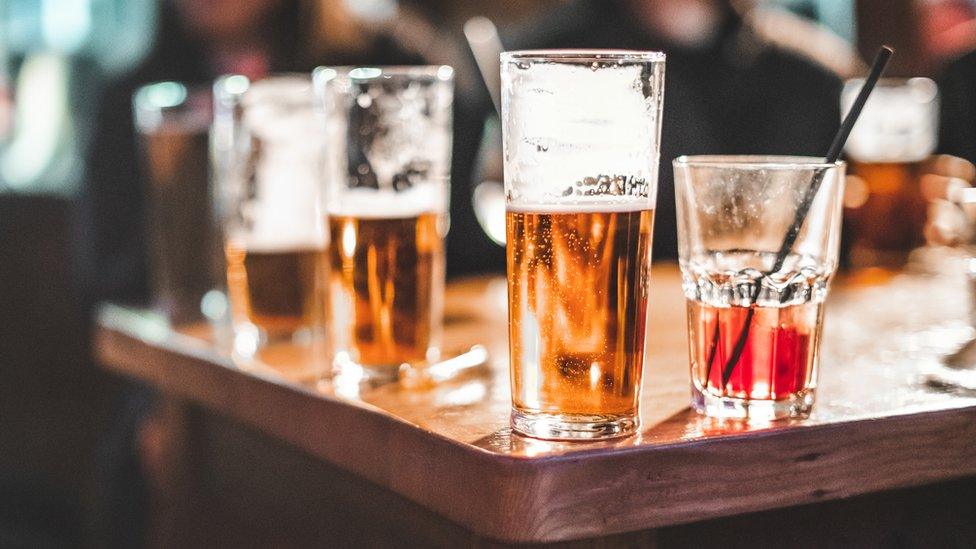Calls to raise minimum unit alcohol price to 65p in Scotland
- Published
- comments
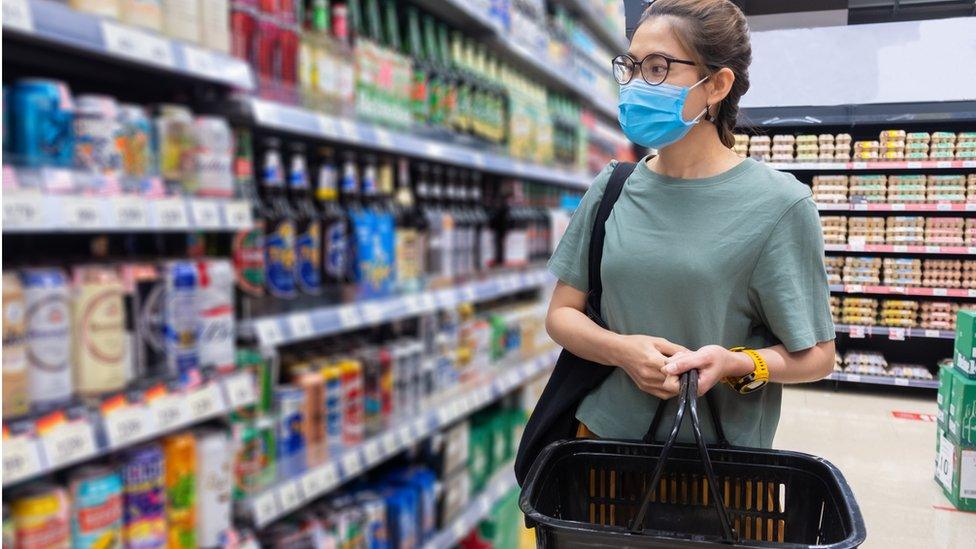
A group has called for the minimum unit price of alcohol to be raised from 50p to 65p
A group of charities and medical experts have urged the Scottish government to increase the minimum unit price (MUP) of alcohol from 50p to 65p.
The group argue that the positive effects of the policy will have been affected by inflation and the pandemic.
The policy sets a floor price for drinks depending on how many units of alcohol they contain.
At First Minister's Questions Nicola Sturgeon said the level of the price would be kept under review.
An MUP of 65p would see a cheap litre of vodka at 37.5% ABV (alcohol by volume) increase in price from at least £18.75 to £24.38.
The group calling for the change is made up of 28 organisations, including health and children's charities and a number of medical royal colleges.
In a letter to the Scottish government, they say inflation will have "significantly eroded" the effect of MUP, while the pandemic may have eliminated any health improvement in the population.
They argued that since the policy was introduced in 2018, Scotland has seen a reduction in alcohol consumption and decreases in hospital admissions from alcohol-related liver conditions.
Changing drinking habits
Alcohol Focus Scotland said that although there was a 10% decrease in alcohol related deaths in 2019, they rose by 17% in 2020 to their highest level in more than a decade.
Chief executive Alison Douglas blamed changing drinking habits during the pandemic for the increase.
"We've seen that minimum unit pricing can have a positive effect," she said.
"We need to off-set both the effects of inflation and of the pandemic, and adjust the minimum unit price to a level that will save more lives and prevent a new generation from developing an unhealthy relationship with alcohol.
"We urge the Scottish government to take action now and raise the minimum unit price to at least 65p."
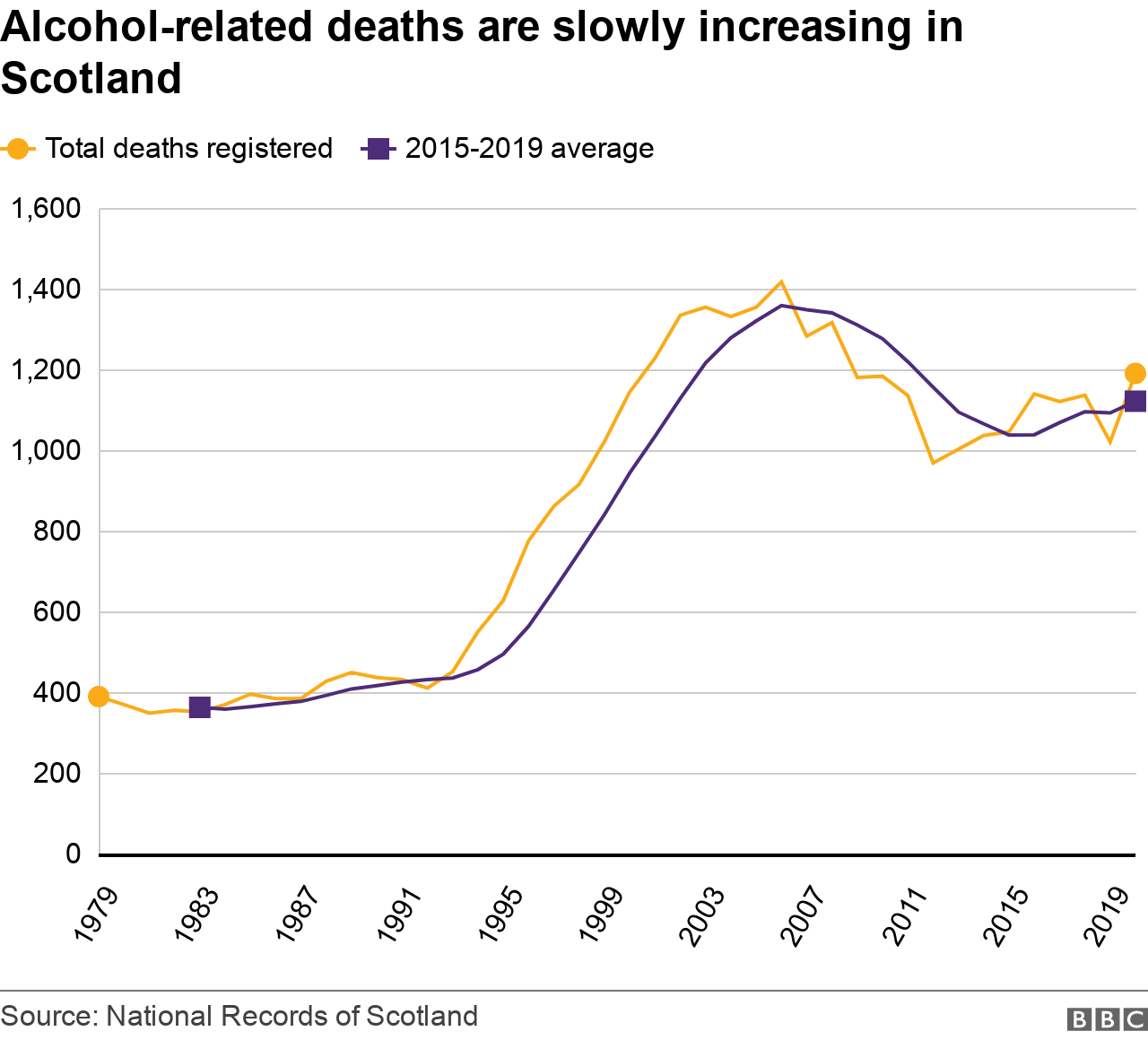
The Scottish government committed to review the minimum unit price two years after it began, but this was delayed due to the pandemic.
Dr Alastair MacGilchrist, who is chairman of Scottish Health Action on Alcohol Problems (SHAAP), said Scotland could "not afford" to wait any longer.
He added: "This support from a wide range of organisations shows that experts in public health and beyond believe increasing the minimum unit price is the right thing to do."
Dr MacGilchrist said he believed there had to be a "sweet spot" when setting the MUP for it to have the greatest impact.
He told BBC Radio's Good Morning Scotland programme: "If you set it too low it's not gong to be effective, but if you set it too high it's going to have an unfair impact on moderate drinkers.
"We think that to at least 65p would be the correct level just now and would certainly save lives."
The level of alcohol MUP was initially set in 2012, with the introduction of the policy delayed by a lengthy legal challenge in the years before its introduction.
In May a study found MUP had had a lasting impact in Scotland, and that alcohol sales had fallen by 8%.
According to the research, the impact was mainly seen in households that bought the most alcohol - but the exception was in high-purchasing, low-income homes, who did not seem to change their habits.
'Robust evidence base'
Wales introduced the policy last March and campaigners have called for it to be implemented in England and Northern Ireland.
The Republic of Ireland is due to introduce its own MUP policy on 1 January 2022.
Asked about MUP at First Minister's Questions on Thursday, Ms Sturgeon said an evaluation into pricing was "ongoing".
She said a Public Health Scotland report on the issue was due to be published in 2023 and noted any change must have a "robust evidence base".
She added the UK government's Internal Market Act was a source of "great concern" as it may affect the ability to adjust prices.
A Scottish government spokesperson added: "We continue to gather evidence and analyse the impact the policy has had since its introduction in 2018.
"Prior to the pandemic, we were seeing early encouraging signs of a reduction in alcohol sales and a reduction in alcohol specific deaths.
"The pandemic and the changed legal landscape post-Brexit are two significant events that are impacting on this work and must be factored into the analysis."
- Published29 May 2021
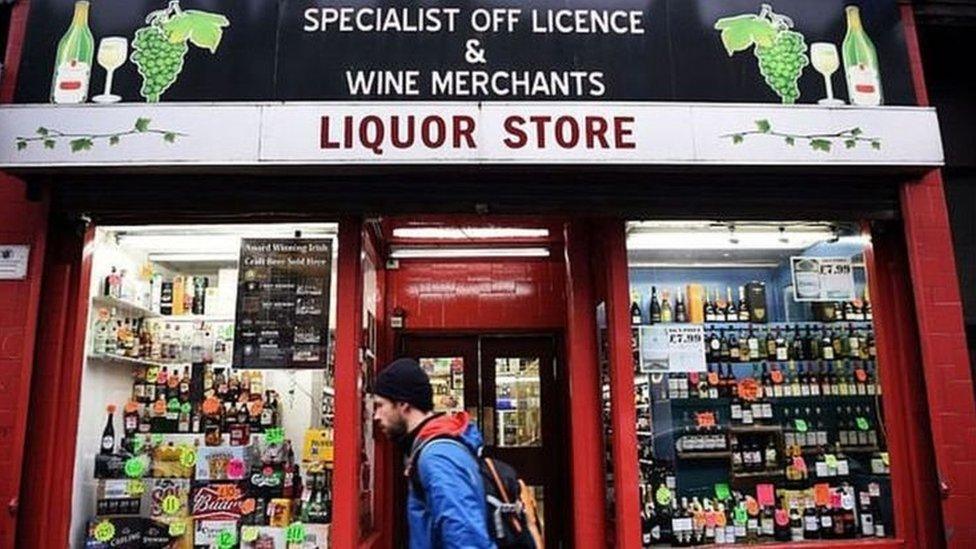
- Published12 October 2021
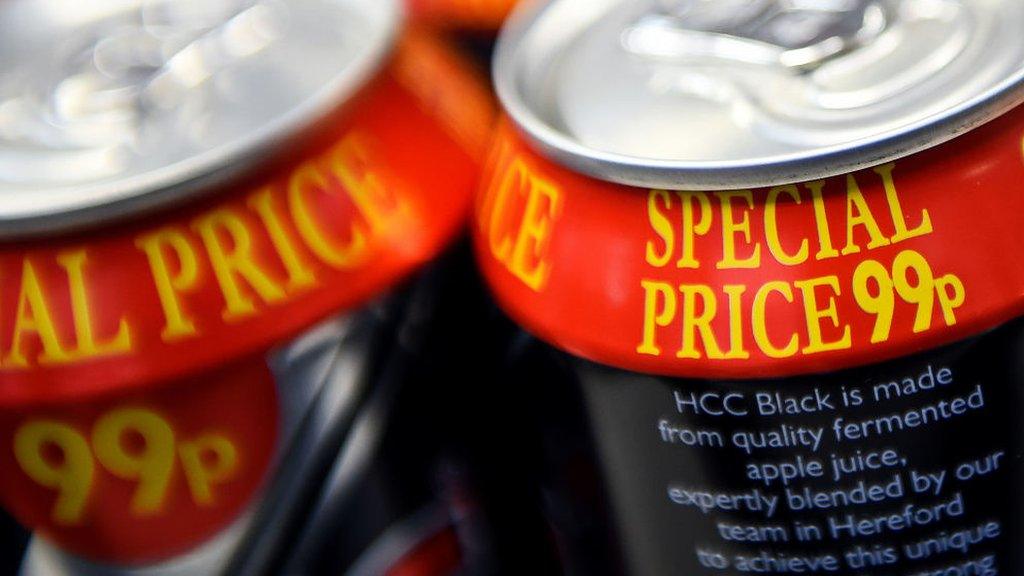
- Published17 August 2021
